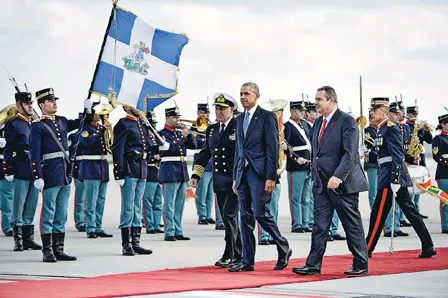**ISLAMABAD, May 20 (APD) ** -- Pakistani Prime Minister Nawaz Sharif is all set to attend the upcoming US-Arab Islamic Summit to be held in Saudi Arabia on Sunday, Pakistan’s Ministry of Foreign Affairs said Saturday.
According to a statement from the foreign ministry, on the invitation of King Salman bin Abdul Aziz, Prime Minister Muhammad Nawaz Sharif will visit the Kingdom of Saudi Arabia (KSA) from May 21-22, 2017 to participate in the first trilateral US-Arab-Islamic Summit, to be held in Riyadh on Sunday.
In addition to King Salman and U.S. President Donald J. Trump, 55 Heads of State and Government from the Muslim world have been invited to participate in the Summit.
The Summit in Riyadh will provide an opportunity for the participating countries to discuss how to overcome the menace of terrorism and extremism across the world.
It is expected that the Summit will delink terrorism from any particular religion, culture, civilization or region.
“In his address at the Summit, as well as during his interaction with world leaders, PM Sharif will focus on Islam's message of peace, tolerance and unity. He will highlight the great sacrifices and major successes achieved by Pakistan in defeating the scourge of terrorism and extremism in the region,” the statement said
PM Sharif will also join the world leaders to attend the inauguration ceremony of the World Centre against Extremism, an important counter-radicalization initiative by Saudi Arabia.
Some media reports said that PM Sharif will have a one-on-one meeting with U.S. president Donald Trump on the sidelines of the summit, however Pakistan’s Ministry of Foreign Affairs excluded such possibility, saying “the format and the very full agenda of the half-day Summit, which is expected to have the participation of more than 35 leaders of the Islamic world as well as Secretary Generals of the Organization of Islamic Conference, Arab League and the Gulf Cooperation Council, does not permit sideline bilateral meetings”.
(ASIA PACIFIC DAILY)
 简体中文
简体中文



